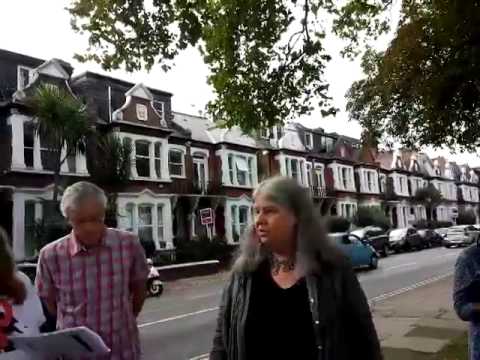Allegations that the Government tried to stop a local newspaper from reporting on a paedophilia scandal at Elm Guest House have been cast into doubt by a Kingston Courier investigation.
In 2014, former news editor of the Surrey Comet Hilton Tims said that in the mid-1980s the paper was served a government D-notice – a gagging order that blocked stories about suspected child abuse at the guest house in Richmond Upon Thames.
A former Surrey Comet journalist and a high-ranking defence official have rubbished the supposed cover-up, which was first reported by national paper The Observer and widely circulated.
“I’d definitely have remembered something like that,’ said Tim Sullivan, 65, who began his career as a Comet reporter in 1976 and was still at the paper at the time the D-notice was said to have been served, in around 1984. He said he was “surprised and puzzled” by Tims’ account.
“Had a formal D-Notice been issued, it would have been big news in the Comet newsroom.”
Elm Guest House, which has since been converted into flats, has been at the centre of a national investigation into claims of sexual abuse of children by government ministers, MPs and police officers in the late 1970s and early 1980s.
D-Notices are for guidance only and participation by news organisations is purely voluntary. Deputy secretary of the official Committee that issues D-Notices (officially ‘DA-Notices’) Air Commodore David Adams told the Courier there was no substance to the claim of a D-Notice being used to silence The Surrey Comet – which is Kingston’s oldest paper – or anyone else.
“Although the allegations that “D Notices” have been used to shield people allegedly involved in child abuse are widely repeated on the internet, there is absolutely no substance in them,” he said.
“The sole purpose of the DA Notice System is to avoid the inadvertent public disclosure of core national security information. The boundaries of the system are strictly adhered to.
“It is often the case that individuals championing particular issues attribute (what they regard as) inadequate media coverage to the imposition of ‘D Notices’. Invariably they are mistaken, because the only information which is of ‘D Notice’ concern is that involving core national security
“The D-Notice system explicitly excludes advice on any issues which fall outside those guidelines, including criminal activities, scandal, corruption or embarrassment,” he said.
The original D-Notice story, published in 2014 by The Observer quoted Tims as saying: “I put someone on to the Elm Guest House story, the chief reporter I think, to make inquiries.
“It was the following day that we had a D-Notice slapped on us; the reporter came over and told me.
“It was the only time in my career.”
Contacted by the Courier, Tims, 82, denied that he had ever spoken to The Observer and gave his recollection of the ‘D-Notice’ incident: “It was a phone call, and one of our reporters shouted across to me that we were having a D-Notice slapped on us.
“I don’t remember who the reporter was, although it was someone on the Kingston desk.
“I went straight away and told the editor David Wilson.”
Wilson has previously said he has “no recollection whatsoever” of a D-notice being served on the Surrey Comet.
Guardian journalist Laura Marcus, 60, who worked on the Comet’s Kingston desk between 1979 and 1984, told the Courier she did not remember the notice either. “It’s 50/50 in my mind whether it happened at all,” she said.
Marcus was working for The Guardian when its sister paper, The Observer, first published the D-Notice claim. The Kingston Courier approached The Guardian – one of whose columnists is Tims’ daughter Anna – to ask what it had done to verify Tims’ story.
A spokesperson for Guardian News and Media said: “We are not aware of having received any complaints about the story in question and we do not disclose our sources.”





